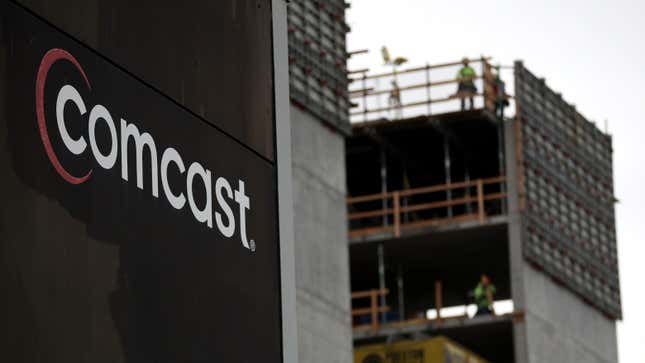
If broadband in the United States sucks, you can thank the telecoms industry, which is apparently so obsessed with maintaining our current crappy internet infrastructure that it spent a combined total of $234 million lobbying against faster, cheaper competitors during the 116th Congress.
According to a new study conducted jointly by Common Cause and the Communications Workers of America (CWA) union, telecoms giants spend nearly $320,000 a day on average in the course of their work to thwart any legislation that would disrupt their ironclad grip on the broadband marketplace. Comcast — reportedly the worst offender — spent more than $43 million in the last congressional session alone, with AT&T trailing at $36 million spent.
“The powerful ISP lobby will seemingly spend whatever it takes to keep politicians beholden to them and maintain a status quo that leaves too many Americans on the wrong side of the digital divide,” the two groups wrote in their combined report.
As the study notes, the largest internet service providers have “...used their outsized influence in Congress to block any legislation that would undermine their stranglehold over the broadband marketplace.” Among the telecoms giants’ primary lobbying targets was the Save the Internet Act — an initiative introduced by House Democrats in 2019 to reinstate the net neutrality rules repealed by the Federal Communications Commission during the Trump administration — as well as the aptly-named Accessible, Affordable Internet for All Act.
The end result of such meddling is that everyone’s broadband is generally much slower and more expensive — particularly the 83 million Americans that live under a broadband monopoly.
“For years, Congressional efforts to pass legislation needed to address the nation’s long-standing disparities in connectivity have been stopped dead in their tracks in part because of aggressive industry lobbying and the oversized political influence of the largest ISPs,” Common Cause Media and Democracy Program Director Yosef Getachew told Vice.